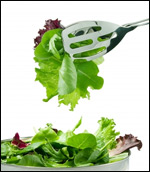
A new study reveals that eating fruits and vegetables during childhood can prevent arterial stiffening, one of the key factors in heart disease, during adulthood.
The study followed 1,622 subjects, ranging in baseline age from three to 18, for 27 years. It compared their lifestyle factors, such as fruit and vegetable intake, alcohol use, and smoking.
The researchers found that those who ate fewer vegetables had higher pulse wave velocity, indicating a higher risk of atherosclerosis and heart disease.
Mika Kahonen, MD, PhD, professor and chief physician for the department of clinical physiology at Tampere University Hospital in Tampere, Finland, says: "These findings suggest that a lifetime pattern of low consumption of fruits and vegetables is related to arterial stiffness in young adulthood. Parents and pediatricians have yet another reason to encourage children to consume high amounts of fruits and vegetables."













